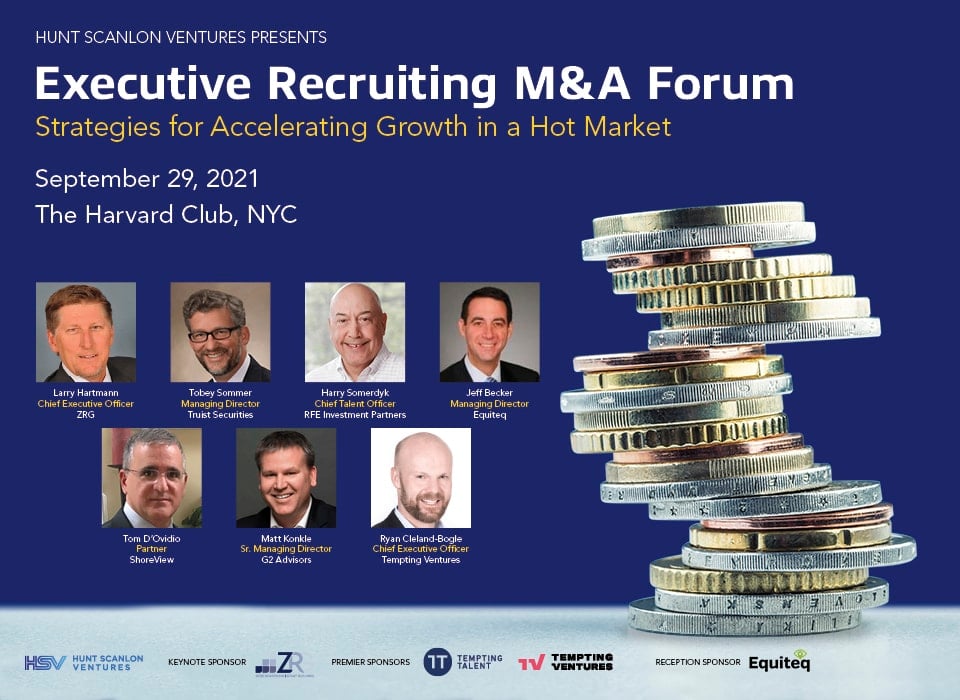Deep Cultural Truths of Your Company Reside in the Underlying Data

August 3, 2021 – Someone once told Rusty Rueff that people only change two ways, through invitation or through situation. The same can be said of companies, says the co-founder for search firm Alioth in a new report. “But it is usually when they lose customers or face pressure from shareholders – or a significant product failure – that they ultimately reconsider their trajectory,” he said.
Unfortunately, when companies change by force, it’s usually too little too late, and it’s painful for employees, according to Mr. Rueff. “What’s often missing is a deep and holistic assessment of what’s actually happening inside an organization, the resident cultural truths and beliefs of employees, that can shed light on what change is needed.”
Mr. Rueff also notes that waiting for a seismic event to catalyze company change is a surefire way to fail. “We need to probe deeper at what’s happening inside our organizations, among and between employees, to help organizations thrive and get ahead of what’s next,” he said. “As we move towards a post-quarantine world, we are at a major inflection point in how employees and employers relate to each other. With millennials and Gen Z becoming a majority of the workforce, employees are demanding a greater focus on the meaning, purpose, balance and the ways we will work together from their employers, and pushing them inwardly and outwardly to the company to live up to the values espoused by leadership.”
He points out that this pressure will require companies that have not been committed to deep analysis to fundamentally change the way they have addressed culture. “This change might be slow and hard, but it’s a prerequisite for building for what’s to come,” said Mr. Rueff.

Rusty Rueff is an active advisor, board member and investor of technology start-ups. He served as a founding board member for Glassdoor and HireVue. He worked on the Obama presidential campaign as the coordinating national co-chair for technology and was later appointed by the President to the advisory committee of the Arts for The Kennedy Center.
Change is hard. “What we often experience is an unwillingness to reflect, adapt , and work to mediate a growing disconnect between a company’s lived culture and the beliefs of the organization, but it doesn’t need to be this way,” Mr. Rueff. said. “Yet how can we prevent this disconnect before it’s too late? For one, it requires understanding the underlying needs, feelings, fears, anxieties, passions and dreams of your employees well beyond the surface level. The data to do this is available and right at our fingertips, but oftentimes we don’t ask for it, if at all.”
Cognitive Dissonance
This cognitive dissonance can be glaring, especially for executives who have never paused to view their company culture vs. the reality of employees on the front lines. In Mr. Rueff’s experience with start-ups and large companies he has heard many companies say “we are a family around here.” That’s a great sentiment, but let’s be honest, families are hard, even when they are working well–everyone has a story of family issues, and so we have to ask ourselves how many employees also feel that same way?”
Mr. Rueff uses the example of how families are unique because they come back together through a shared set of values, principles and beliefs. So, if a company really wants to be a family, then they need to have adopted a true shared set of values and principles,” he said. “Principles are how we do the work, like how we take risks or don’t take risks, how we cut corners or don’t cut corners, how we treat each other in the good and bad times,” Mr. Rueff explained. “Having everyone, including executives, understand and agree on a set of principles is essential for a healthy culture. Yet in too many cases, when we really dig into the data, we see a misalignment between the written company principles and beliefs and what employees actually experience.”
Related: How to Create a Culture of Retention
This is because we are pretty good at defining the obvious, according to Mr. Rueff. For example, we can see when someone is hard-charging and when someone is not, or when someone is a good team member or not. “These are obvious cultural observations,” Mr. Rueff said. “But what we really need to understand to unlock a thriving company culture is the non-obvious, the actions and traits that really define who we are – the things that really make a difference.”
One way Mr. Rueff describes it is if you sent him your credit card bill and your calendar, he could tell you within 30 minutes what your priorities are. Why? Because he’d know how you spend your time and how you spend your money. While it’s not everything, it’s a pretty good proxy for understanding what you value in life. This is because he is getting data that is below the surface level.
 ZRG Acquires Walking the Talk
ZRG Acquires Walking the Talk
ZRG has acquired Walking the Talk, a consulting and advisory firm focused on culture transformation. Hunt Scanlon Ventures facilitated the introduction and transaction between both organizations. Walking the Talk, headquartered in Amsterdam, specializes in enhancing performance results by aligning culture with strategy. Since the company was established 11 years ago, culture has landed firmly on the agenda of most executive teams and boards of directors.
Another example: If a company was hiring for an executive leadership position, and Mr. Rueff dug in and found out that six members of the senior management team subscribe to The Economist, he’d want to put a candidate in front of them who reads The Economist. Not just because they read the same thing, but because they must have similar things they value and believe that are signaled by their interest in world economics, strategic problems, long-form journalism and deep analysis. In this case, The Economist readership is a data point that could reveal below-the-surface cultural attributes that are part of what the company values for both the organization and the candidate, he notes.
Evolving People and Companies
“If we are going to evolve and change as individuals and as companies, we have to start with getting to these attributes, beliefs, and values first,” Mr. Rueff said. “This means broadly, and deeply, understanding our employees’ beliefs and values with a more refined, deeper set of data points and whether they are truly aligned and reflected in the company culture, or not. Without a concrete understanding of a company’s core beliefs, and the true day-to-day lived reality of the employees, we are wandering aimlessly and will never build the exceptional teams and culture so many strive for.”
The simple surveys of our past are not going to get to the root cause of cultural disconnects in our workplace, nor will they fully tell us what is working well, according to Mr. Rueff. “Too many times we diagnose the symptoms, but we miss the cause,” he said. “They are better than nothing, so don’t get me wrong, but the complexities of organizational culture have grown more complex on a daily basis with the inflow of external factors like social media, 24-hour news cycles, politics and social causes.”
Mr. Rueff also says that after more than a year of pandemic life, the workplace stands to gain from more actionable insights. “The future is bright in that we can now know more by implementing diagnostic technology that leverages AI and machine learning based on contextual information to get to these deeper understandings and provide a diagnosis and a root cause analysis, to continue building alignment and a strong foundation of shared company beliefs and culture,” he said.
True cultural change can’t happen without first understanding our company’s belief structure, and that starts with data, says Mr. Rueff. “We have access to the data to do this today, we just aren’t yet all using it to its full capacity and benefit,” he said. “What we learn could be hard truths, and could force a reckoning, but they are also essential truths for companies to grasp if we want to lead sustainably, to see around corners for what’s next, to be prepared for the unexpected. Executives need to accept the invitation to grow and change before they are put in a situation where they have to.”
Related: Transforming Corporate Culture and Driving Performance in the New Workplace
Contributed by Scott A. Scanlon, Editor-in-Chief; Dale M. Zupsansky, Managing Editor; and Stephen Sawicki, Managing Editor – Hunt Scanlon Media












